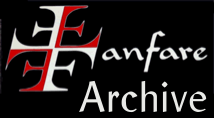Fanfare Contributor Bio
James H. North
The son of a pianist and an engineer, North has led a life enriched by music and mathematics. A 1952 graduate of Williams College, with a double major in physics and music, he was for 35 years a member of the Mathematical Sciences Department at IBM’s Thomas J. Watson Research Laboratory. His work in the 1950s has been called a foundation stone of artificial intelligence, and his development of automated problem-solving algorithms enabled the physical design of computer logic chips. Since 1988, he has been a freelance journalist and music critic, writing for such publications as Fanfare and Classic Record Collector. He has written program notes for LPs and CDs on the Past Masters, Koch, Music & Arts, and Teldec labels and has published major studies on composers Donald Erb and Joanna Bruzdowicz, pianist Youri Egorov, and record producer/executive Goddard Lieberson. In the introduction to North’s monograph on the relationship between Willem Mengelberg and Gustav Mahler, English editor Tully Potter cited North as “a leading American critic.” Mr. North’s publications include New York Philharmonic: The Authorized Recordings 1905–2005: A Discography, plus Boston Symphony Orchestra: An Augmented Discography (with a foreword by James Levine), as well as discographies in four of the New York Philharmonic’s multi-CD historical sets: “The Mahler Broadcasts, An American Celebration,” “Bernstein Live,” and “Kurt Masur at the New York Philharmonic.” He is currently working on an as-yet-untitled discography/radio log of Andre Kostelanetz.
That’s the official bio, from my books. I bought into classical music on 78s in high school, moving quickly from Rachmaninoff to Prokofiev and Shostakovich. At 17, I heard the “Eroica” on the radio, not knowing what it was, or by whom. I said to a buddy, “That’s the greatest music I’ve ever heard” (a nascent critic?). I still think so. I’ve always wanted to learn new music, which led me through Bartók, Stravinsky, Hindemith, Janáček, and Schoenberg to Henze, Dutilleux, and Golijov. I’ve loved Haydn since Robbins Landon’s Haydn Society LPs in the early 1950s. As is the case with many of us, I have unaccountable blind spots: Vivaldi and Chopin are denied me. Go figure.





















